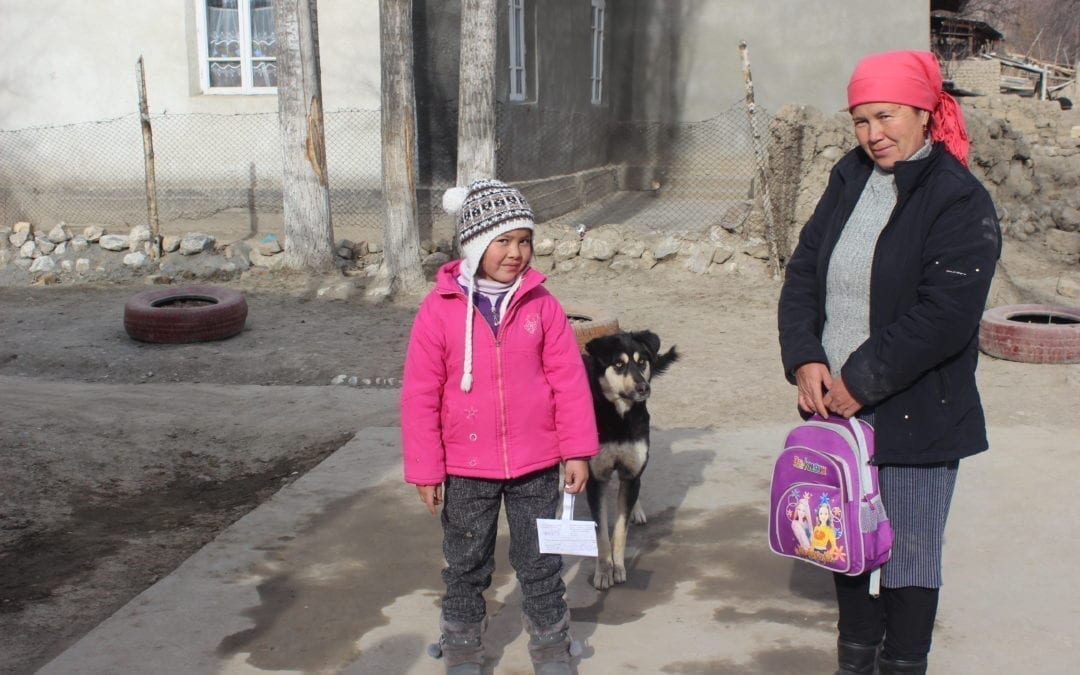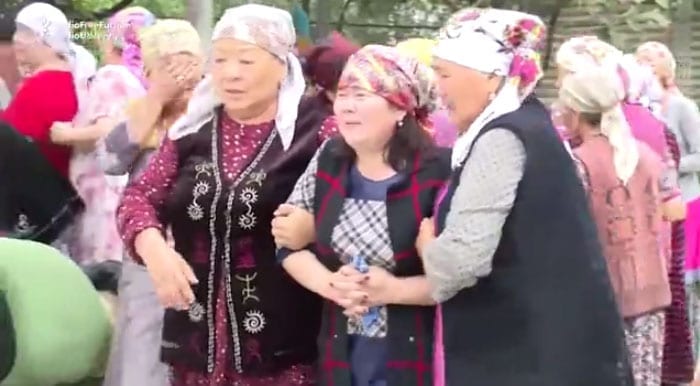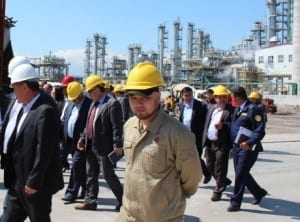
Nov 7, 2016
In 2011, Anziret Urazbaeva saw her family in Kyrgyzstan separated as her husband, Gulamali Urazbaev, was forced to migrate to Russia for work. With no jobs available in Kyrgyzstan and the family struggling to secure food and other basics, Urazbaev, 46, a primary school teacher, left Anziret, his two sons and a daughter, and found a job at a construction company in Khimki, northwest of Moscow.
Working first as a painter and later laying mosaic tiles, Gulamali was punished by his employers, who reduced his wages because he lacked experience. Like most migrant workers, he sent most of his earnings home.
In 2014, Urazbaev lost his job in Khimki and was invited by friends to work in Sakhalin to pack frozen fish at a factory. His son, 18, joined him, to help the family. But Urazbaev’s wages again were cut, this time by an employer who cited the nation’s economic crisis as justification.
Back in Kyrgyzstan, Anziret, 44, tended cattle and a small plot of land—until she saw an opportunity to achieve a measure of economic independence. By taking part in a seminar organized by the Solidarity Center in cooperation with the Garment Workers’ Union, which represents rural women artisans, Anziret learned how to create hand-made products like scarves from the wool of her sheep and goats.
As she sells her goods, she hopes to launch an income-generating business and ultimately not rely solely upon the remittances from her husband and son to feed her family.

Sep 1, 2016
The search for a better future and the means to support their families in Kyrgyzstan ended tragically for 14 migrant workers Saturday, August 27, in Moscow, when their printing plant caught fire. All of the victims were young women, including two 17-year-old girls, according to reports. Three Russian workers also died.

One of two young Kyrgyz women killed in a Moscow factory fire. Credit: Radio Free Europe/Radio Liberty
Burials for the workers were held August 31, in towns around Kyrgyzstan.
The mother of a 21-year-old lost in the fire told Radio Free Europe, “With no work here, the Kyrgyz have to leave.”
The majority of Kyrgyz who leave their country to find work—estimated at about 500,000—head for Russia. There they often face discrimination, exploitation and unsafe working conditions. In the last five years, an estimated 1,500 Kyrgyz migrants to Russia died in workplace and other incidents.
“The stories of the victims are the same: unemployment, poverty, migration,” says Lola Abdukadyrova, Solidarity Center program coordinator in Kyrgyzstan. “They hoped to gain enough money to help to their families.”
Over the last year, more than 1,000 people went through the pre-departure trainings for the migrants conducted by the Solidarity Center in all regions of Kyrgyzstan. They were briefed about their rights and responsibilities while staying in the Russian Federation, with special attention to the legal aspects of employment. Workers were urged to finalize individual employment contracts, in particular, during the trainings. In addition, the Garment, Metallurgy and Mining, Transport and Retail Workers’ Unions actively supported an informational campaign to support migrant workers, putting up posters and installing informational boards in the biggest markets, bus stations and airports across the republic.

Sep 17, 2015
The recent firing of a union leader at a Chinese-owned oil refinery in Kyrgyzstan is the company’s latest attempt in the past two years to prevent workers from forming a union, according to the global union IndustriALL and workers.

Zhanaydar Ahmetov, leader of the trade union committee at China Petrol Company Zhongda was fired and locked out of the plant. Credit: IndustriALL
Zhanaydar Ahmetov, leader of the trade union committee at China Petrol Company Zhongda was fired and locked out of the plant on August 29, the second union leader dismissed in two years, factory workers say. Oil refinery workers created a union last December, elected Ahmetov as chairman and joined the Mining and Metallurgy Trade Union of Kyrgyzstan (MMTUK). Some 350 of the 400 Kyrgyz workers in the refinery have joined the union. Although they negotiated a contract with management in January, the company refuses to sign it.
(Take action to urge the company to reinstate Ahmetov.)
The company now is challenging the union’s registration in court. In March, management set up a company-controlled union, and workers report that managers are pressuring them to join it.
Hazardous, Even Deadly Workplace Conditions
Following Ahmetov’s dismissal, hundreds of workers rallied at the refinery, demanding his reinstatement and reiterating to management the need for improved safety and health measures, an increase in wages and a collective bargaining agreement. Workers say workplace hazards include plant machinery with instruction and warning signs posted in Chinese, posing serious and even deadly risks to the primarily Kyrgyz-speaking factory workers.
In July, management refused entry to MMWUK’s safety and health inspectors, according to workers.
MMTUK President Eldar Tadjibaev says if management will not negotiate with workers, the union will take the company’s repeated violations of labor and human rights to the Kyrgyz state prosecutor.
Workers Forced to Sign Contract Lowering Their Wages
Zhongda, which began operating in Kyrgyzstan in 2013, employs nearly 1,000 workers, including management staff. Workers first created a union in April 2014, and in May, union leader Nuraev Almazbek was fired and the union disbanded. Almazbek is suing the company over the illegal dismissal.
Last November, managers told workers if they did not sign a contract lowering their wages, their actions would be interpreted as unwillingness to work and they would be fired.
Workers also are seeking compensation for hazardous working conditions, transparency about the hazards posed by specific duties and adherence to government regulations stipulating 90 percent of the workforce be locally based.





